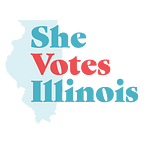Menstrual Hygiene Day — May 28
Menstrual Hygiene Day is on May 28 and brings awareness to the issue of period poverty worldwide. It was started by the German non-profit WASH United in 2013 to promote action by non-profits, governments, individuals, industries, and the media to promote menstrual health for all menstruators. In 2020 alone, menstrual hygiene day was recognized by over 411 million people. May 28 was chosen as the day because, on average, menstruators have their period for 5 days per month. The average duration of this menstrual cycle is 28 days. Therefore the 28th day of the 5th month of the year was chosen as Menstrual Hygiene Day!
According to the official website for Menstrual Hygiene Day, hundreds of events and activities are organized by MH Day partners and other organizations around the world. These range from educational sessions in schools, community rallies and concerts to raise awareness, advocacy events with governments to increase the political priority of the issue, product donations and many more.
She Votes Illinois is one of over 530 partners of Menstrual Hygiene Day working to promote menstrual equity through various efforts.
- Earlier this year, She Votes Illinois hosted the She Votes Policy: Power to the Period Event with speakers, including politicians, advocates, experts, and students, discussing the importance of equitable access to menstrual products.
- Two of She Votes Illinois’s Board Members, Emma Zubak and Mary Catherine Hanafee LaPlante, also hosted a community event where they educated a group of high school students about the waste caused by period products. They informed the audience that each year, 12 billion pads and 7 billion tampons are discarded (The Stanford Magazine). Additionally, with 62% of U.S. menstruators using pads and 90% of each pad being made of plastic, Emma and Mary Catherine called for the need to create a more sustainable period pad.
- Within this past week, She Votes Illinois sought to continue advocating for menstrual equity by celebrating Menstrual Hygiene Day. Leading up to the 28th, She Votes Illinois has called on residents of Illinois to participate in action items ranging from tweetstorms, menstrual product donation drives, and contacting legislators to support menstrual hygiene product bills.
As She Votes Illinois continues its work advocating for menstrual equity and hygiene, here are a list of legislative bills aiming to advance menstrual equity to help end period poverty in Illinois and their status as of May 26, 2021:
- HB155 — Menstrual hygiene products — Public benefits (in the Senate)
- HB156 — Menstrual hygiene products — All school bathrooms grades 4–12 (in the Senate)
- HB310 — Menstrual hygiene products — Homeless Shelters (on the Governor’s desk to sign)
- HB641 — Menstrual hygiene products — Higher Education (in the Senate)
Contact your Senator and the Governor to support these bills!
She Votes Illinois encourages Illinois residents to continue to donate to organizations that help people access menstrual products, contact legislators to tell them to support bills that promote menstrual equity, check out our Menstrual Equity Toolkit, and follow @shevotesil on social media for important updates and information that can be shared with others to help educate them on the topic of menstrual equity and motivate them to get more involved in advocacy that supports women, femmes and girls.
Contributors:
Mary Catherine Hanafee LaPlante, She Votes Illinois board member; Prospect High School, Class of 2021
Emma Zubak, She Votes Illinois board member; Walter Payton College Prep, Class of 2021
